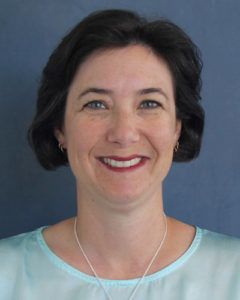By Darcy Kremin, AICP, April 14, 2020
 I AM AN ENVIRONMENTAL CONSULTANT, and I’ve worked in the private sector for more than 18 years. This pandemic has had an unprecedented effect on private businesses, and that includes consulting firms working on planning and development projects. Before the COVID-19 crisis hit, most consulting firms were extremely busy. Few firms were bidding on new projects because they didn’t have the staff to prepare proposals nor could they staff those efforts if their proposals were accepted. After California’s Shelter-in-Place (SIP) order was issued on March 19, all consulting firms, big and small, reacted quickly and decisively to keep their businesses running.
I AM AN ENVIRONMENTAL CONSULTANT, and I’ve worked in the private sector for more than 18 years. This pandemic has had an unprecedented effect on private businesses, and that includes consulting firms working on planning and development projects. Before the COVID-19 crisis hit, most consulting firms were extremely busy. Few firms were bidding on new projects because they didn’t have the staff to prepare proposals nor could they staff those efforts if their proposals were accepted. After California’s Shelter-in-Place (SIP) order was issued on March 19, all consulting firms, big and small, reacted quickly and decisively to keep their businesses running.
As a first step, consulting firms switched to working from home. This switch was not without difficulties, though. Fortunately for me, my firm had remote access to the servers where all project files are stored. The problem we faced was accessing specialized software for our technical studies and modeling. With the help of our Information Technology department, we were able to work around this issue. For staff who primarily do field work (biologists, archeologists, etc.), the switch was not as easy. In fact, for most consulting firms, field staff who could not easily transfer to desk work were furloughed or laid off entirely. One consulting firm furloughed up to 20 percent of its workforce within two weeks of the SIP order.
Other measures firms took to reduce labor costs included asking executives, principals, and other senior staff to take pay cuts, reduce work hours by 20 to 40 percent, and limit “non-bill” time to the extent possible. However, making sure staff time is directly billable to a project is only half of the equation; getting paid for that work is the other half. Consulting firms “float” the cost of staff time (salaries) for between 30 and 90 days depending on when invoices are paid, which makes the cost of doing business quite expensive. So consulting firms started reaching out to clients to receive payment for past work and to ensure that future invoices will be paid quickly.
Even as the world changed, some consulting services are still required. For example, public agencies don’t typically have the in-house specialized knowledge needed for air quality/greenhouse gas emissions and noise analyses. Other consulting services have already been reduced or eliminated, such as contract planning. Some projects may have been put on hold or stopped altogether. Housing is still being constructed, which is a good sign. Big infrastructure projects seem to be moving forward, but time will tell if those budgets are reallocated to health care projects. I am hopeful that long-range planning projects will continue since we need to keep shaping the future of our communities.
Consulting firms are going to struggle as we reset to a new normal. You may see more firms bidding on fewer projects. You may find that some firms no longer provide certain expertise or will not want to work on a specific type of project. Some firms may go away entirely. It’s hard to predict what will happen, but we know our world will not look the way it did on March 19.
I am incredibly grateful to the men and women who continue to provide essential services to help us shelter–in–place, and to stay safe and healthy. And to those who are struggling or who have lost their jobs, I can only hope that this period of adversity will soon end.
